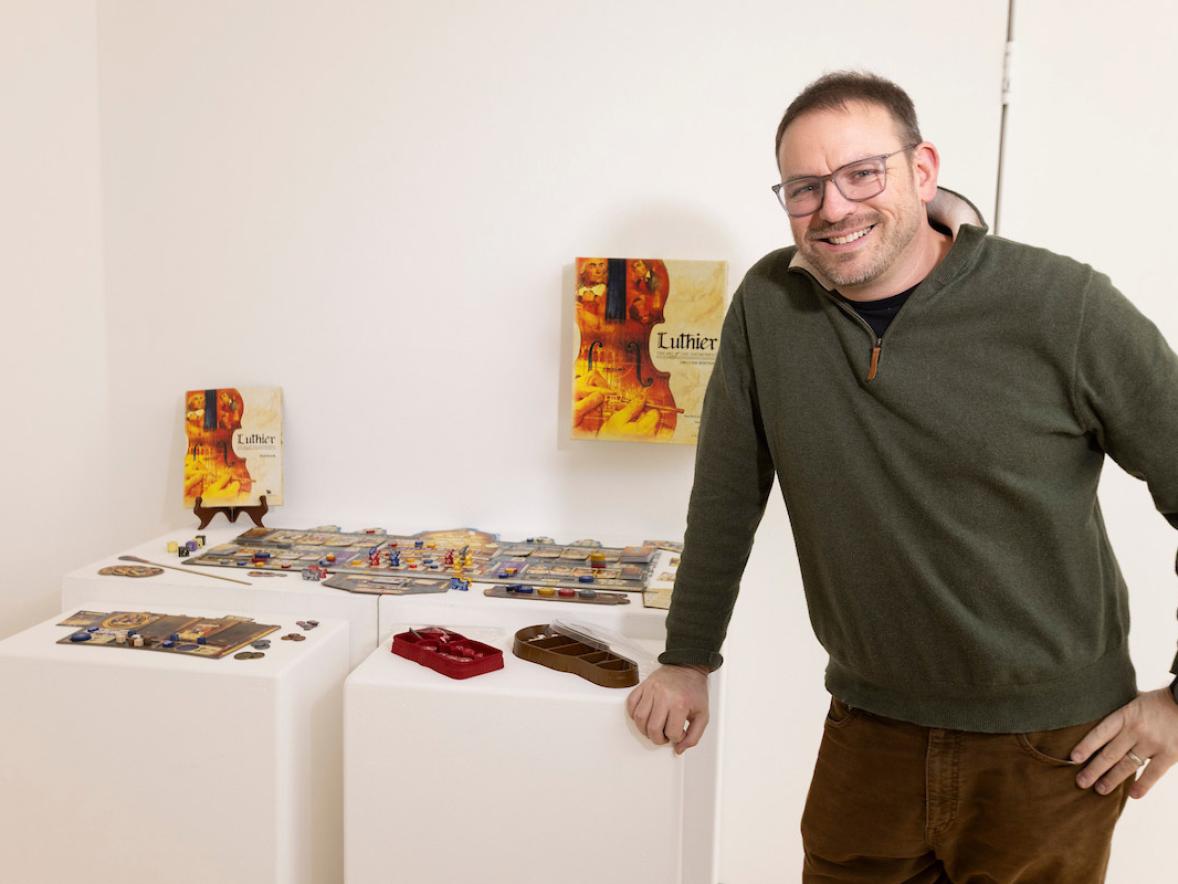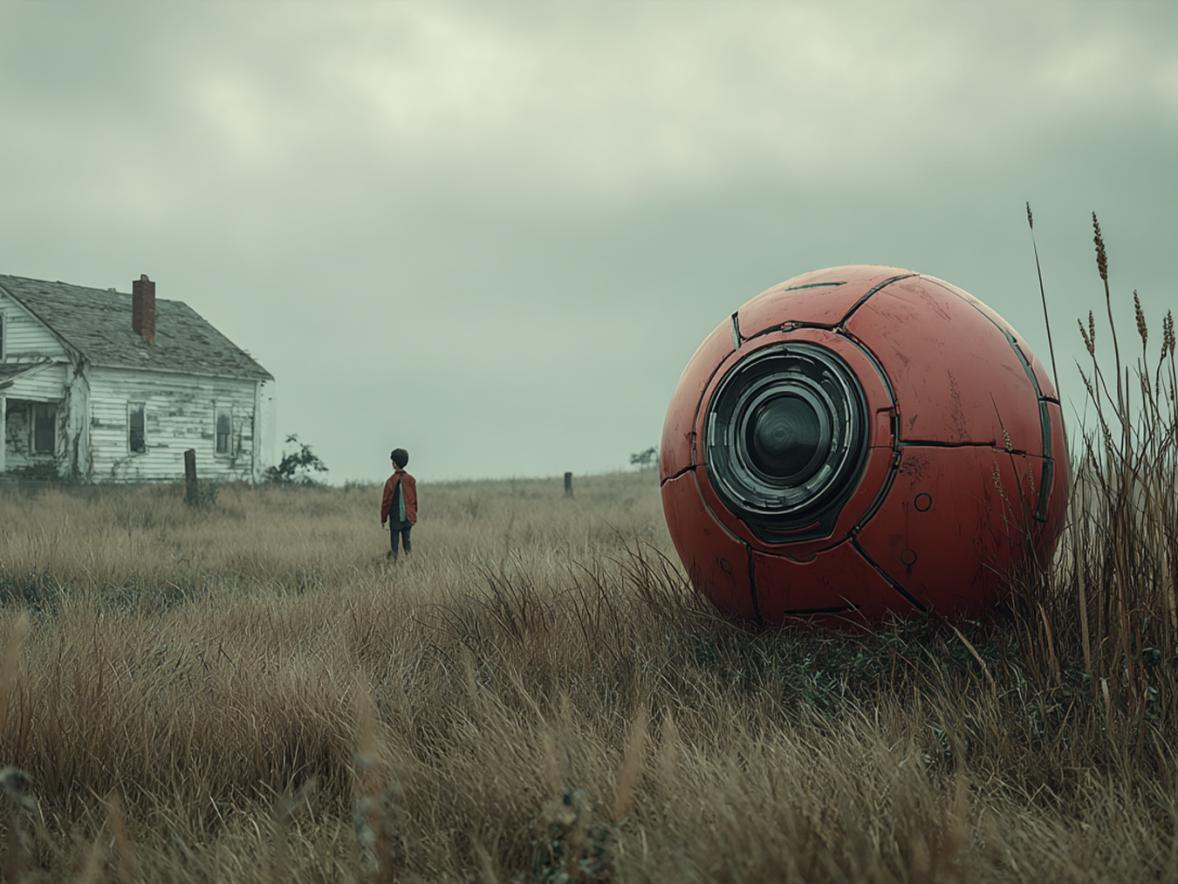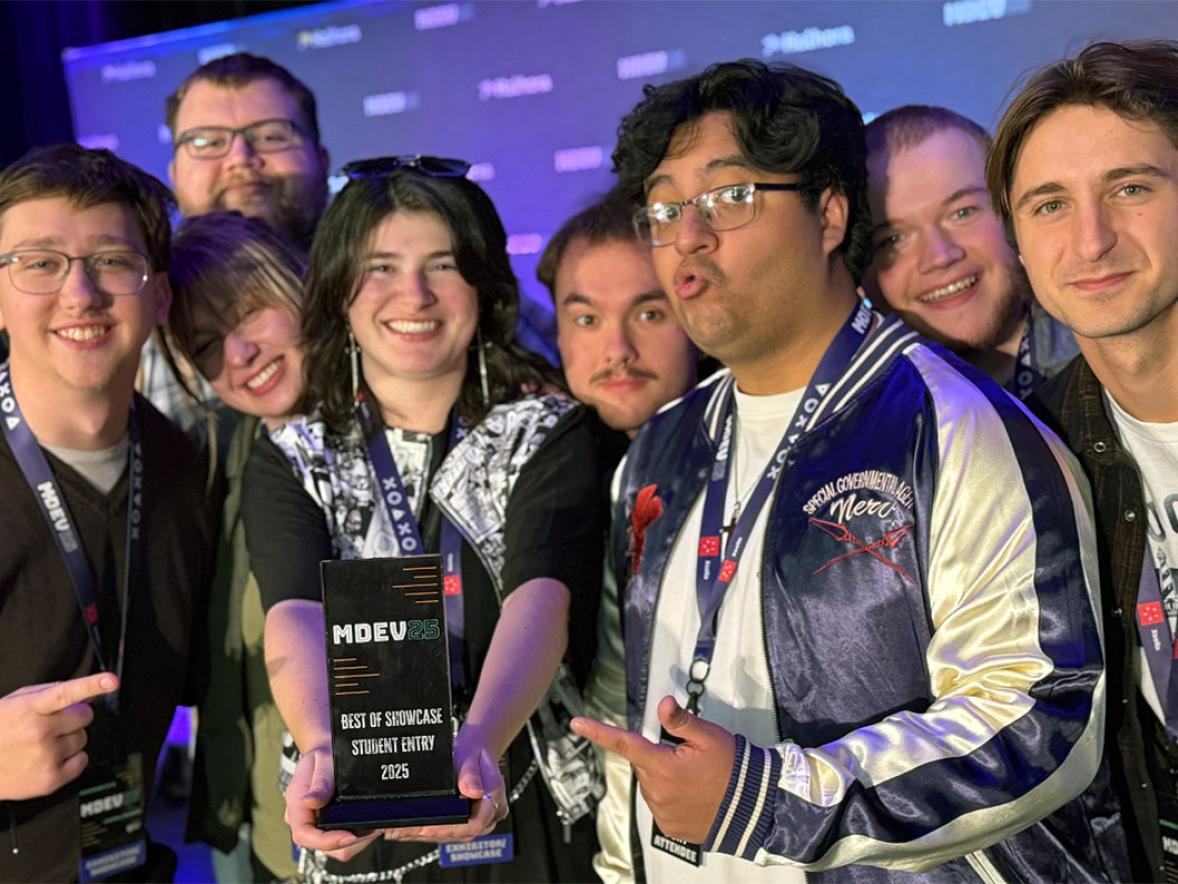Corporations sometimes act much like toddlers, said Jeffrey Lockwood, the author of a book critical of political censorship.
Two-year-old children don’t know right from wrong, and corporations in their mission to maximize profits and shareholders’ dividends also often lack a moral compass when it comes to discerning their impact on society, said Lockwood, one of the keynote speakers Wednesday, April 4, at the Civil Liberties Symposium hosted by University of Wisconsin-Stout’s Center for the Study of Institutions and. The symposium also was held April 5.
At the keynote, Lucas Vebber, representing Wisconsin Manufacturers & Commerce, and Tom Pearson, UW-Stout anthropology professor, were respondents.
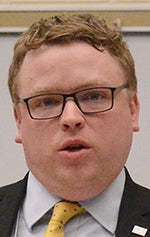 If a child is the major wage-earner for the family, the power shifts, Lockwood said. “Now Mom and Dad, what time is my bedtime?” Lockwood quipped. “Our real danger is separating corporations and the state. That is being blurred.”
If a child is the major wage-earner for the family, the power shifts, Lockwood said. “Now Mom and Dad, what time is my bedtime?” Lockwood quipped. “Our real danger is separating corporations and the state. That is being blurred.”
As politicians need more and more funding to get elected, they will take money from corporations and be beholden to the industry and censor criticism of those corporations, infringing on the free expression of others, Lockwood said. Government is no longer for the people but for corporations, he added.
Lockwood wrote the book “Behind the Carbon Curtain: The Energy Industry, Political Censorship and Free Speech.” Some research has criticized the coal energy industry in Wyoming; in turn political pressure was placed on the University of Wyoming to stifle that. Lockwood and other scholars have argued it is a clear case of academic freedom.
“The rules of the marketplace become the rules of civil society,” Lockwood warned. “When people stop speaking we are in deep trouble. People take it to be normal when everything is treated as a commodity, including speech. Living behind a carbon curtain of silence is too high of a price to pay.”
One example he used was a 2011 art installation “Carbon Sink” at his university depicting partially charred logs going into a sinkhole. The installation was intended as a commentary on climate change due to fossil fuel use, Lockwood said. Elected officials declared it an insult to the energy industry and demanded the school remove it. Eventually, it was removed after threats were made to university funding.
One of Lockwood’s concerns is that young people don’t grasp the importance of free speech, particularly when they are afraid. “The work of social justice will never be done,” Lockwood said. “The task of education is daunting.”
Vebber said one of the duties of all people is to protect civil liberties because they are what America’s society is built upon. “You can’t stand for free speech and not allow corporations to speak,” he said.
Another concern he has is hyperbole, he said. “One person can take one ridiculous thought, put it on Twitter, it gets shared and it becomes a movement,” Vebber said.
He pointed to an example of those opposed to the repeal of a state law that effectively placed a moratorium on metallic mining in Wisconsin. The repeal opponents posted comments on social media claiming that the all the state’s rivers would be filled with acid, Vebber said. “They took it to an illogical extreme,” Vebber said.
Pearson said that in research he has done on the frac sand mining industry in Wisconsin many people are concerned that the democratic process is being circumvented.
“Many people were frustrated by the influence these companies had,” Pearson said, citing the example of a company paying those living near a proposed sand mine for the landowners’ “cooperation” with the project.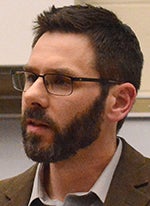
He also found that people were concerned about diminished Department of Natural Resources autonomy and former DNR employees reporting they were discouraged from commenting on controversial issues.
The keynote session was moderated by UW-Stout’s Doug Mell, executive director of University Communications and External Relations.
The Civil Liberties Symposium featured three keynote addresses and eight sessions over two days, with speakers from around Wisconsin and the U.S.
The Center for the Study of Institutions and Innovation started in fall 2017 through a Charles Koch Foundation grant. The intent of the center is to facilitate civil and rational debate and research in the state and beyond on important civil liberties guaranteed in the U.S. Constitution.
###
Photos
Top: Lucas Vedder
Bottom: Tom Pearson





